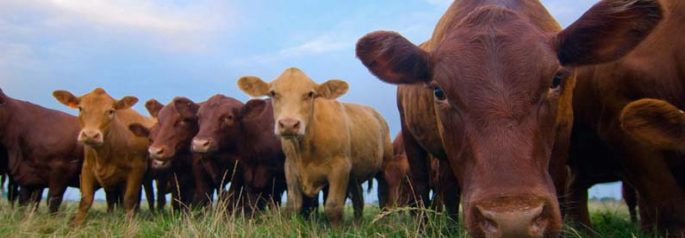
Dear John,
Free range, grass fed animal protein is obviously a healthier dietary choice than factory/feed-lot meat. But is it possible on a large scale to provide this type of product in an environmentally sustainable manner? Is it a viable ecological choice? This will be a popular issue and more of a challenge to vegetarianism soon because a well funded, faith based health “guru” is coming out with a book that advocates (with Biblical justification) this type of diet. Thank you.
Carl
Dear Carl,
Maybe in Biblical times such a diet might work for humanity, because there were several million people on the Earth. But now, when our numbers are measured in the billions, and increasing, we’ve got to find a way to live that is sustainable and just. We can’t continue to exploit the Earth, we’ve got to protect it and preserve it. We’ve got to find a way to live where our ecological footprint is lighter.
I just don’t see any way that free range grass-fed beef can be anything other than a food for the privileged. It’s just too resource intensive. If there were fewer of us, then I could see how it would work. But I can’t turn my back on the literally billions of us who are hungry. My goal is a way of life that is thriving, just and sustainable for us all. I can’t see free range grass-fed beef playing a major role in that.
Perhaps the foremost advocate of free-range grass-fed beef today is Loren Cordain, author of The Paleo Diet. Even Dr. Cordain says, “Clearly, it is not practical nor economically possible for all of the world’s people to eat wild game… Without grains, there would be worldwide starvation of an unprecedented proportion.”
Have you read the article I wrote on grass-fed beef? You might find it of use.
May all be fed,
John
Note: Image from the U.S Dept. of Agriculture on Flickr under a Creative Commons license

